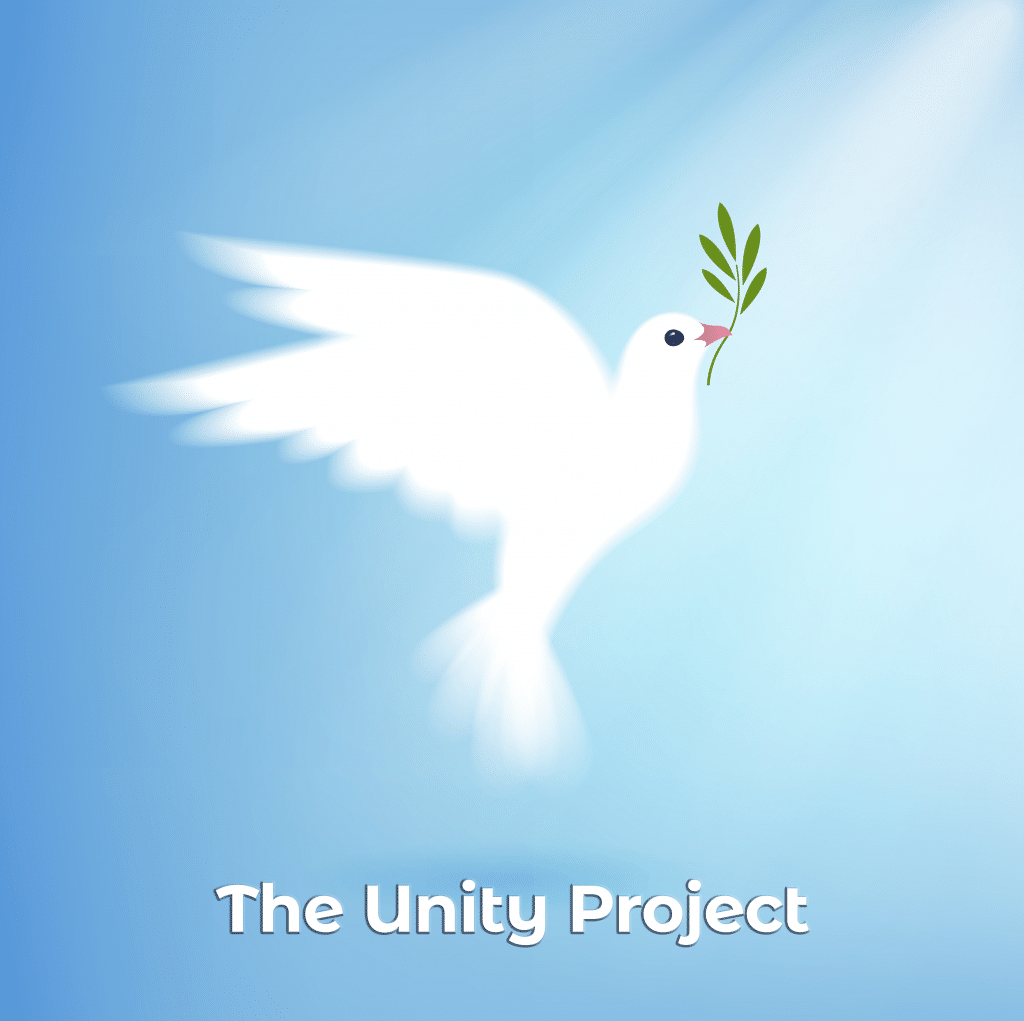Applying Sufi Teachings to Create Inner & Outer Peace

We – all of humanity – are truly one family, created in spirit from a single soul, and embodied as children of one mother and father. Our guide, Sidi Muhammad al-Jamal, drilled this teaching of unity into us repeatedly, and its relevance to all of us in this age of accelerating climate change, global markets, instant communications and pandemics, is hard to miss. He urged us to create real peace in our homes and families first and foremost. And yet, most of us have no idea how to make this a reality on the ground. Misunderstandings and irreconcilable differences are unfortunately all too common in our families, support groups, organizations and communities.
- What does it take for us to be together, walking in the Sufi way of love and unity?
- How do we speak authentically, with care and awareness, of our impact on another’s heart?
- How do we forgive and let go of judgment, blame, and shame?
- How can we navigate the difficult conversations that are an inevitable part of everyday life?
- What do we do about anger within ourselves, and when we encounter it in others?
- What forms of governance or collective action foster wise, cooperative decision-making for mutual benefit, allowing for every voice to be heard, honored and respected?
- How do we deal with diversity of all kinds, making space for everyone to thrive without bias or stereotyping?
- What forms of leadership work best for our communities to achieve their purpose through mutual support?
The methods, skills and practices taught in the creating unity process address these questions and provide the tools needed for individuals, couples, families and communities to solve their problems, make wise decisions, and move through conflicts to find reconciliation, wholeness, peace, understanding, and love. The teachings are practical, grounded and can be applied in any setting.
Concerns We Help With

- A misunderstanding resulting in communication breakdown.
- A problem that you all haven’t been able to resolve on your own.
- A difference in opinion that you need help in clarifying.
- Trouble hearing and understanding each other.
- Challenges in a relationship with a family member or a friend.
- A persistent conflict that you all haven’t been able to resolve on your own.
- You are part of a group that needs support in coming to a decision about something.
- A separation that has occurred among family members and there is a desire to reconnect, but you aren’t sure how to go about it.
- There is a long standing conflict that you are engaged in, and the other party isn’t yet ready to come to the table, but you would like to work on the conflict from your side.
- You would like coaching or support in preparing to talk with someone you are having a conflict with.
What We Offer

The SSC Unity Project provides support for beloveds experiencing conflict or difficulty in any other relationships with individuals, or within families, organizations or communities, whether or not the others involved are members of our Shadhiliyya Sufi tariqa. The Project offers three main forms of support:
- Conflict Coaching: This involves meeting one-on-one with a coach to explore what may be at the root of the conflict, potentially including understanding how and why each of the parties may be contributing to it, what perceptions, assumptions, emotional dynamics, identity issues or unmet needs may be driving it, and what steps might be taken by the individual to address their own needs and contribution, before meeting with the other party. Then, if needed, coaching can be given on how to engage the other party (or parties) productively as may be required to ease or resolve the conflict.
- Integrative Mediation: This provides third party support by a qualified mediator agreed upon by the parties, to facilitate a conversation between them over one or more sessions, on how to address the conflict in ways that help both parties to understand and address the needs underlying their positions on the issues, to mutual benefit.
- Reconciliation (Sulha): Where a conflict has created separation or distrust between the parties so that the relationship itself needs healing, an agreed mediator with experience in this traditional methodology will provide support not only to address the issues dividing them, but also to support them in moving beyond blame by recognizing and acknowledging the ways they each may have contributed to the conflict, and by extending forgiveness for what has been acknowledged by the other.
How to Request Our Support
Please email the following to theunityproject@suficommunities.org:
- Your name
- Your general location and time zone
- Your contact information
- General timeframes that you are available (i.e. Mondays 9-12 pm or Saturdays 10-5 pm)
- A brief description of the issues for which you need support
- The form of support in which you may be interested.
Who We Are
The Unity Project is run by the three talented beloveds who teach the Advanced Spiritual Peacemaking Program at the University of Sufism: Nura Laird, John ‘Abd al-Qadir Davies, and Mahabbah Kimberly Young.
Donations for Mediation Services

We ask, in accordance with the teaching and example of the Prophet, may the peace and blessings of Allah be upon him, and our guide, Sidi, that those receiving support make a donation to the mediators and to SSC that congruent with their heart’s guidance and without creating debt or other hardship for themselves.
Payment arrangements can be discussed with your mediator at the initial intake session before your mediation, coaching, or reconciliation session. Donations to mediators are on a sliding scale, paid directly to them. Sessions typically last 1.5-2 hours at a time and sometimes multiple sessions are needed to complete the process. We recommend between $40-$100 per hour, whether there is one mediator or two. Donations to SSC are as your heart may guide you and can be made online here. Please don’t let finances be a barrier if you need these services – consult your heart about what is possible in your situation.
Our Relationship to the Ansar Council
We work closely with our sister organization, the Community Support Council (Ansar Council), which provides support in addressing conflicts that are relevant to tariqa issues. If this is at the root of your concern, we encourage you to connect with Ansar through the link given above for more information on options available and how to proceed.
Class Series: Ways to Create Safe and Inclusive Spaces for Conversations About Covid

Dates & Times
All Classes Will Be Held At This Time: 9:00 am – 10:30 am PT / 12:00 pm – 1:30 pm ET
Feb 19th: “Difficult conversations – moving beyond the written word”
March 5th: “Need to be right-getting out of dualistic thinking”
March 19th: “Listening for understanding and connection”
April 2nd: “Politeness (adab) and disagreement”
April 16th: “Empathy- connecting with the heart of the other”
May 14th: “Tools to facilitate difficult conversations”
May 28th: “Working with anger- your own and others’ ”
Program Series Cost
In alignment with SSC’s policy that no one is kept from the teachings because of an inability to pay, this class is open to all. However, we need a minimum of 30 people registered who pay an average of $120 for this 7-class series, insha’allah, in order to go forward. Once you register you will be sent a zoom link to join the class. If the class doesn’t run you will be notified and issued a full refund.
Where Your Payment Goes
Approximately half of the payment collected goes to the teachers, a quarter to SSC, and a quarter to the poor. We are using an average suggested donation here because in our path (Sufism and Islam), it is the custom for those who have more to contribute more, and for those who have less to give less. This ensures the door is open for all, regardless of the ability to pay, insha’allah. In order to honor our teachers and have a donation to send to Jerusalem, please be as generous as you can. Thank you!
Classes will be recorded for your use afterwards, but the recordings are only for use by those who attend the series in order to preserve safety and confidentiality for the participants.
Free Introductory Classes
We have offered two free introductory online classes in the practical, day-to-day tools for creating unity and peace. We will be using the methods we taught in these classes and related methods for walking through conflict (al-jalal) in ways that empower us and those we care about, building trust, understanding, empathy and love.
- Tuesday, December 14 at 7:00-8:30 pm ET: Difficult Conversations with Nura Laird
- Sunday, January 16 at 4:00-5:30 pm ET: Conflict Coaching, Mediation and Reconciliation with Abd al-Qadir Davies
“I Loved these Classes and Want to Learn More”
More in-depth classes are offered by the University of Sufism, leading to certification or, for advanced students, a Master of Divinity degree in spiritual peacemaking. Click here for more information.
Some Tools for Creating Unity to Resolve Conflict
- Listen first to understand rather than arguing or trying to be right.
- Focus on your own responsibility for or contribution to the conflict rather than blaming the other person. Leave space for them to do the same.
- Make tawba (repentance).
- Ask yourself: “Do I want to be right? Or do I want to be in the love?”
- Reflect on the following quote from Rumi: “Out beyond ideas of wrong-doing and right-doing there is a field. I’ll meet you there.”
- Look for the mirror in yourself. What is the trigger in you that made you react to the other’s behavior?
- When angry, consider choosing another time to talk so you can take care of yourself first.
- Use I-statements, speak from your own experience, and avoid assumptions regarding the other person’s intentions.
- Speak with integrity – don’t blame, make negative assumptions, or make the other person wrong.
- Get curious, not furious.
- Verify and check things out – don’t act on or pass on rumors or gossip.
- Listen to understand the root of the problem before jumping to solutions.
- If you are angry, reflect upon what you might have lost or what need of yours is not being addressed in that situation.
- Ask open-ended questions rather than leading questions – for example, “could you tell me more about…”
- Seek help early – don’t leave it until the conflict has become a source of separation.
- Have mercy for yourself and others.
We pray that you find peace in your heart and in your life, and we are here to support you, if needed. Peace.